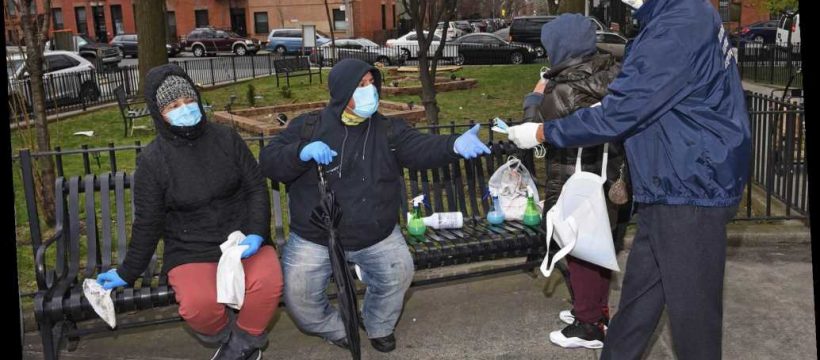In recent weeks, a number of people have contacted our offices offering to donate masks and other forms of personal protective equipment, or PPE. You would think that, given disturbing reports of shortages at hospitals and other critical facilities, the city and state would eagerly accept these donations — or at least, look into them.
You’d think wrong.
We have heard the same story from numerous suppliers and individuals with access to crucially needed supplies. They follow city and state guidelines and submit information through the proper channels. These suppliers want to get PPE in the hands of the heroes who need them.
And officials tell them, time and again: “Thanks. We’re good.”
That doesn’t make any sense. Health workers have been resorting to coffee filters for masks and garbage bags for gowns. Hospitals in Brooklyn and around the city tell us that the need for PPE hasn’t abated. In many areas, the need has only grown.
And it isn’t just hospital workers, either: Grocery clerks, nursing-home staff and other front-line workers are practically begging us to supply them with masks, especially after the Centers for Disease Control and Prevention advised all Americans to use face coverings to prevent the spread.
Our offices have tried to fill the gap where we can. We have distributed thousands of masks to New York City Housing Authority staff, transit workers, school-safety agents and others. But we simply can’t meet the enormous demand here in Brooklyn and throughout the five boroughs on our own.
The widespread shortage of PPE affects all of us, but communities of color are especially vulnerable to dangers. Data recently released by the city Department of Health revealed that confirmed cases and deaths resulting from COVID-19 are largely concentrated in black and brown communities. Many people in these neighborhoods don’t have the luxury of telecommuting. They are the ones who respond to our 911 calls, drive our buses, scan our groceries.
When we deny these people the means to protect themselves and others, we’re sending a clear message that while our city might deem them “essential,” we really think they’re expendable.
Even during periods of calm, our procurement rules are a byzantine mess, causing bureaucratic headaches that can take weeks and months to resolve. During a time of emergency, the time windows are drastically shortened — as the death toll from COVID-19 continues to mount, every minute counts. Yet it doesn’t seem like the city and state have adjusted their protocols to adapt to the new reality.
That’s why we’re calling on both to relax their procurement rules during this time of emergency to expedite the distribution of PPE to front-line workers.
It’s important to note that not all PPE is procured or donated through the city or state. Most health facilities have an infection-prevention team to conduct quality testing on supplies before they’re released to front-line staff. As long as it meets their standards, these facilities can accept supplies from a variety of sources.
To be clear, we aren’t suggesting that we suspend the government’s vetting procedures that guarantee gowns, masks, gloves and other items are in good condition. We recognize that in times of crisis, there will always be hucksters and scammers looking to make a quick buck, and we have to be vigilant. As elected leaders, we have a responsibility to spend taxpayer money in a responsible manner.
But allowing stockpiles of equipment from legitimate suppliers to languish in warehouses isn’t responsible. The biggest lie we’ve been told for weeks is that the shortage of PPE is an immutable reality, something that can’t be fixed. But if the calls we’ve been fielding in recent weeks are any indication, the supply is out there. The city and state just have yet to tap it. If we’re going to overcome this pandemic, it’s time we stop letting red tape cost us more lives.
Eric Adams is Brooklyn borough president. Justin Brannan represents the Brooklyn neighborhoods of Bay Ridge, Dyker Heights, Bensonhurst and Bath Beach on the City Council.
Source: Read Full Article
